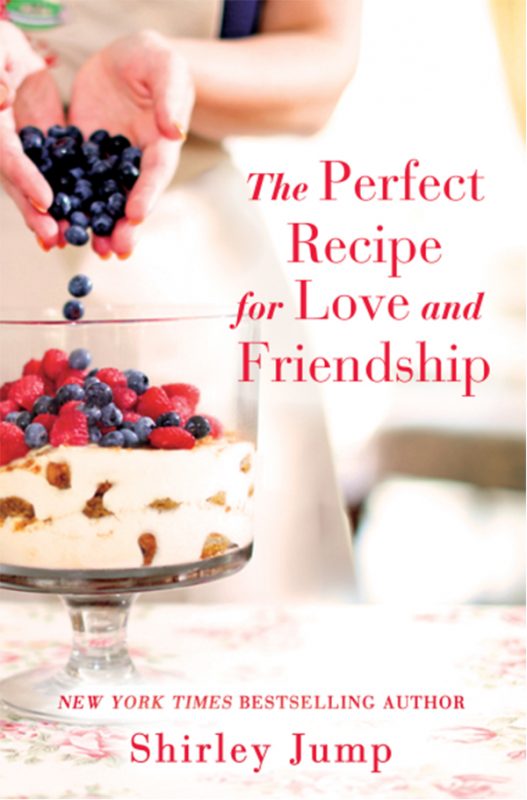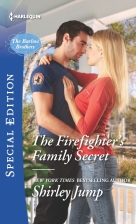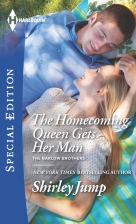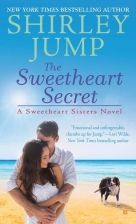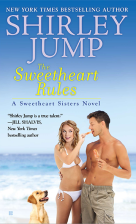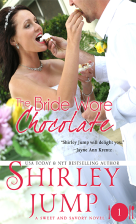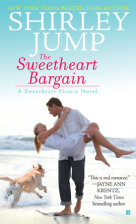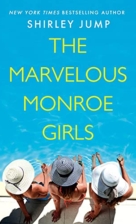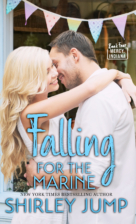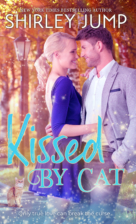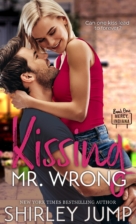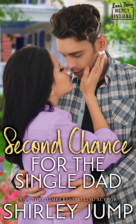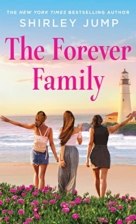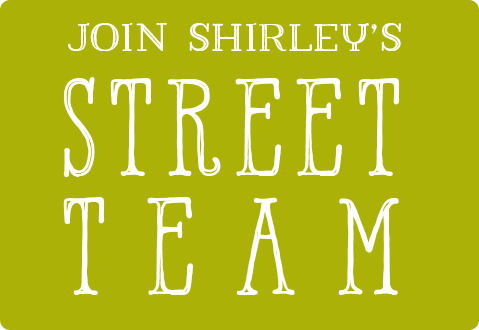The primroses were blooming. If there was one thing Bridget would remember about that spring, it was the way they bloomed, small but proud and bright, like they were determined to show their happy faces even as winter’s gray lingered, making one last feeble attempt to overpower April’s promised sunshine.
She stood on the back porch while people hovered inside her house, talking in hushed tones with somber faces. Her heels pinched at her toes, black shoes she’d bought and set on a shelf in her closet. Worn today, for the first time, shiny and tight and mean.
She inhaled deep breaths of the crisp, fresh air. She’d always thought spring smelled like hope. Like promises of great things around the corner. In elementary school, her desk had sat by the wide crank windows at St. Gregory’s, and every spring, the breeze would drift into the room, riffle her papers and books, and tease her into going outside. As soon as the bell rang at the end of the day, Bridget would run for the door, eager for the long walk home that she dreaded when snow filled the streets. Today, the air didn’t smell like hope at all. Instead, it seemed too harsh, too angry.
Good old-fashioned Catholic guilt, woven into the very fiber of her soul by countless Sundays spent whispering confessions to the shadowy outline of Father McBride, washed over Bridget. She should be inside, playing some kind of macabre hostess. Her mother and her sisters were expecting her, along with the other three dozen people milling around the three-bedroom bungalow with its cornflower-blue paint and crisp white shutters. She and Jim had bought it two years ago. They had still been in the process of fixing it up, about to start the kitchen demo next, when—
Bridget turned back to the house, to the place where all her hopes still resided, clinging to some life raft of delusion. The half of her mind that kept saying everything was fine, that this was all some weirdly realistic dream.
Her mother stood in front of the bay window. Colleen O’Bannon wore a stern expression like it was an accessory to her prim black dress. She motioned to Bridget, that expectant gesture that had brought her four daughters into line a thousand times before.
The rope of muscles in Bridget’s chest tightened. She couldn’t go back in there. Not now. She slipped out of the shoes, setting them neatly side by side on the porch, then padded barefoot down the wooden steps. The last one creaked, bowing a bit under her weight.
I have to remind Jim to fix that.
But just as quickly as the thought occurred, it was chased by a second one.
Jim can’t fix anything. He’s gone.
Not just gone. Forever gone.
That thought of forever was too big, too overwhelming, too much of a tsunami pushing at her. It made that rope inside her chest twist again and her heart skitter and her breath stop. She couldn’t even follow it by the word dead. Maybe she could make his death not real, if only she didn’t think about it, didn’t hear the doctor’s voice in her head. “He’s gone,” the doctor had said, and she’d been in such denial—not Jim, never Jim—that she’d said, “Gone where? And how? I have the car.” The doctor had given her that sad, sympathetic smile they probably learned in medical school and said a whole lot of things that culminated with dead.
None of this was real. She was dreaming the whole thing. The accident, the hospital, the Quincy funeral home with the cloying flowers and the ugly mauve carpeting.
Breathe, Bridget. Breathe. Instead, panic clamped a vise grip over her windpipe.
Bridget charged across the lawn, barreling away from the house, the murmurs, the expectations, and toward the flowerbeds nestled beneath the mottled stone wall, the flowerbeds she had planted just a month ago, when it seemed like everything in her life was as perfect as it could be.
“If we have a baby someday, he or she will see these every morning,” she’d told Jim. “They’re the perfect flowers to say good morning, don’t you think?”
He’d chuckled. “I don’t think flowers can say anything.”
“Aye, then you haven’t listened to my Irish grandmother,” Bridget had said. “The sabhaircin are magical. They protect against the fairies.”
He’d knelt beside her in the dirt, scooping out the musty earth and gently nestling a tender primrose into the ground. “I thought fairies were a good thing. Like the fairy godmother in Cinderella.”
“They are. But they’re also mischievous little things,” Bridget had said. “So people would lay a bouquet of primroses on their doorstep to keep the fairies from entering in the middle of the night and wreaking mayhem. The fairies love primroses, and if you grow them, it’s said that your house will be blessed and happy.”
Jim had kissed her then, kissed her in that sweet spot above her brow, where he would let his lips linger, and he’d inhale the scent of her skin, her hair. It was the kind of kiss that had always made Bridget feel treasured. “How I love every last one of those legends and superstitions of yours, Bridge,” he’d whispered. “You make this practical accountant believe in the impossible, even if all those tales are nothing more than make-believe.”
And now the primroses were blooming and Jim wasn’t here to see them and they were never going to have a baby or have a life together. Although that was the same life she had begun to question until—
Her chest heaved, each breath harder and harder to find. Bridget kept moving toward the primroses, toward those happy beckoning white faces, heedless of the dewy grass that some distant part of her mind thought had grown too long.
It’s Saturday. Jim will mow—
She crumpled to her knees, her black dress puddling around her, spreading an inky cloth stain across the thick, green grass. Bridget grabbed her arms, tightened her grip, and rocked back and forth, willing the tears to stop, for all of it to stop, for time to reverse. For her to be back here, planting the primroses with Jim, planning for the future she’d always dreamed, while the sun shone and the world spun happily along.
A world that she had created, almost like a writer spinning a tale. Having a baby would fix everything, she’d told herself, over and over again. A baby would mend the wounds in their marriage, bring them together, reknit the connection that had become tenuous in the year since Jim took the job in Boston. The one where he traveled more and stayed home less and seemed to be somewhere else, even when he was sitting on the same sofa.
But every time she brought up getting pregnant, Jim had changed the subject or told her they would talk about it later. Every time she cracked open another circle of birth control pills, she asked Jim if they should start trying. He’d press a kiss to her cheek, promise to talk later, and head out the door on yet another trip.
And now there would be no later.
She closed her eyes, but that only made it worse, made Jim’s face dance in the dark space in her mind. She opened her eyes and focused again on the primroses, on their white faces, their yellow cores.
Something twitched in the corner, by the tallest group of primroses and their long, green, finger-like leaves. The flowers trembled, their stems bending. Bridget duck-walked over there, swiping at her eyes to clear the brimming tears.
A hummingbird, so tiny she was sure it was a baby, was caught in a spider web that had been spun between the flowers and anchored into the rough surface of the rock wall. The bird was flying hard and furious, but the web was strong, and every flutter of the bird’s green and blue wings wrapped more of the sticky web around its body.
As Bridget approached, the hummingbird’s movements became more frantic. “Shh, shh,” she whispered, “it’s okay. I’m going to help you.”
The spider, fat and black, sat in the upper corner of the web, bouncing on the gossamer string like a Wallenda. Bridget reached under the bird and pushed at the web, breaking the strands one at a time. “Don’t be scared. It’s okay. I’ve got you now.”
The hummingbird stilled, his heart beating so hard she could see it thunder under his gray breast feathers. Another quick swipe and the web was off the bird’s wings, but still he stayed. She put a hand beneath him, and the hummingbird eased into her palm, his eyes darting left, toward the spider, then right to her. Bridget flattened her palm and turned toward the primroses. “Go ahead, buddy. Go home.”
The hummingbird stayed still for what seemed like a forever moment, watching her, his tail twitching, eyes dark, wary, and big against the blue and green feathers of his head. He lifted off her palm, hovering, wings beating so fast, Bridget could feel the wake. A second later, he was gone, a blur darting toward the trees.
“Don’t tell me. You’re out here looking for a wee leprechaun to make you some new shoes?”
Bridget turned at the sound of her sister Margaret’s voice. No one called her Margaret, hadn’t since the day she’d been born, the youngest of the four girls, the one who was the loudest, the most insistent of the O’Bannon daughters. They’d dubbed her Magpie, and the name had stuck. “I just couldn’t handle another second in there. It was like…”
“A funeral?” Magpie said; then her face softened with sympathy and she dropped down beside her sister, heedless of grass stains on her navy cotton skirt. That was Magpie. Young and brash and unconcerned with the kinds of things that consumed the rest of the world. Her light brown hair hung in one long plait down her back, like an anchor for the flowy cotton blouse that billowed away from her tiny waist and belled on her thin wrists. She draped an arm over Bridget’s shoulders and drew her close.
“This sucks.”
“Yeah.”
Magpie sighed. “I wish I had some kind of good advice for you. Something that would make it all better. But you got dealt a shitty hand, and there’s nothing anyone can say that will make it any less shitty.”
Bridget tightened her grip on her sister. “Thank you.”
“For what?”
“For saying the first honest thing I’ve heard all week. Everyone else is like, ‘It was for the best he went quickly,’ or ‘He’ll be an angel now,’ or the worst one of all, ‘He’d want you to enjoy your life.’ Really? My husband was killed in a car accident at the age of thirty, and I’m supposed to enjoy my life? All I really want to do is crawl into bed and shut the blinds and drink until I forget what day it is.”
“Then do it.” Magpie gave her a little shake. “I’m serious. And I’ll bring the wine.”
Bridget laughed. “You’re nuts.”
“No, I’m not. Mom had me tested.” Magpie winked.
The moment of lightness passed in a blink. Bridget put her hands on her knees and looked out over the lawn, but the green blurred in her vision. “Abby didn’t stay.”
Magpie gave Bridget a crooked, sad smile. “She told me she had to get back to work. Something about her boss being on vacation.”
The lie hung in the air, but neither of them called it out. And why would they? If there was one thing the O’Bannon girls excelled at, it was sweeping the truth away and locking it in a closet. If no one mentioned what had happened three years ago, then they could all go on pretending.
But the truth sank its tenterhooks into every sentence, every look exchanged in the O’Bannon family. The “disagreement,” as their mother called it—really a full-on shouting match the morning of Bridget’s wedding—had culminated in Abby storming out of the reception after telling her sister that she was being blind and stupid. That she would regret marrying that man someday.
Magpie got to her feet and put out a hand. “Come on, Bridge, let’s go back inside. Aunt Grace made her crab puffs, and she’s upset no one is eating them.”
“Because we all got food poisoning at Uncle Lou’s funeral.”
Magpie hugged Bridget’s waist as they walked back to the house. “Look at the bright side. Food poisoning is a totally legit excuse to stay in bed and shut the blinds.”
The Perfect Recipe for Love and Friendship
Bridget O'Bannon is ready for a do-over. After years of pretending she had a happy marriage and denying that she missed the friends and family she'd left behind, she's headed home to restart her life.
More info →


